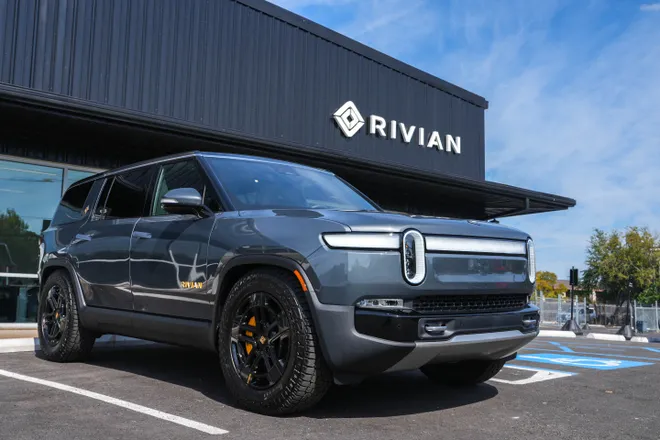German carmaker to incorporate it into its vehicles. Volkswagen is under growing pressure from rivals in the industry, such as Tesla and BYD of China, to switch from electric vehicles powered by fossil fuels to more sustainable options.
Higher interest rates have dampened demand for large-ticket purchases, which has been a further burden for many electric vehicle startups already struggling to break into the market.
There is increased competition from Chinese EV manufacturers who are expanding their global footprint, which is another backdrop against the announcement.
The European Union (EU) has responded by threatening to levy 38% tariffs on electric vehicle (EV) imports from China. This comes after a months-long investigation by the EU’s anti-monopoly arm found that Chinese EV firms were “unfairly subsidised.”
In response, China slammed the investigation and the proposed tariffs as “protectionism” and a breach of international trade rules.
Canada is considering implementing comparable policies to align with its allies, and the United States has already decided to raise import taxes on Chinese electric vehicles from 25% to 100%. This latest move by the European Union follows suit.
Separately, Tesla has recalled more than 11,000 Cybertrucks from the US market owing to problems with the windshield wipers and external trim.
Another setback for the prominent EV maker in the face of intensifying industry competition, the recalls impact vehicles that were initially released for sale at the tail end of November last year.
There will be more strategic alliances and fiercer competition in the electric vehicle market as a result of this partnership between VW and Rivian. This will shape the industry’s future in this age of fast technological and regulatory changes.

